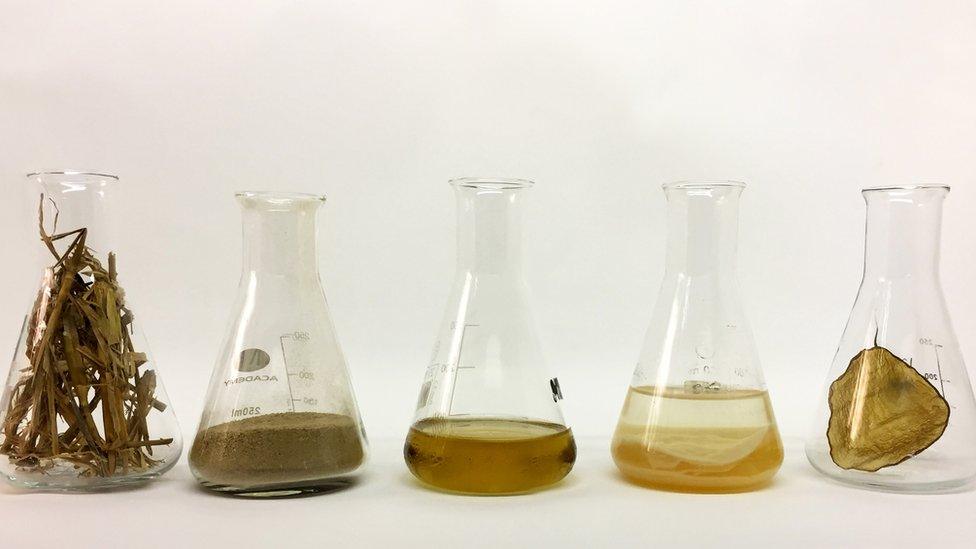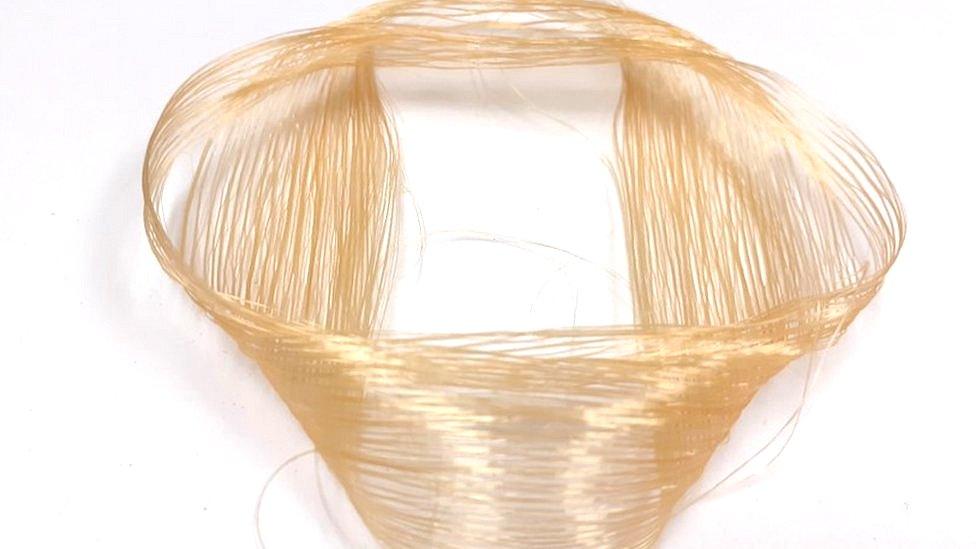University of York to turn waste into fashion
- Published

Household waste, old textiles and crop residues, such as this wheat straw, is broken down into simple sugars and converted to cellulose to spin fibres for new textiles
Household waste, crops and old fabrics could be turned into new "greener textiles" by scientists in York.
Biologists from the University of York are working on a £5.4m project with the Royal College of Art to make the heavily-polluting fashion industry more environmentally-friendly.
It will also mean more textiles can be created in the UK rather than imported.
One million tonnes of fabric are sent to incinerators and landfill per year in the UK, the university said.

Clothes made from recycled plastic bottles were on the catwalk at London Fashion Week in 2018
Prof Simon McQueen-Mason, of the Centre for Novel Agricultural Products, said the fashion sector is worth £32bn a year to the UK but most clothing and almost all textile and yarn are imported. Clothes are often only kept for a few years before being thrown away, and emission levels from the textile industry are almost as high as the total CO2 emitted through using cars.
"The clothing and fashion sector is currently one of the most polluting, responsible for 10% of global greenhouse gas emissions and 20% of global waste water," he said.

The cellulose fibre created in laboratories in York are then spun into fibres at the University of Cranfield to be used for clothes and other fabrics
He added "our approach will dramatically reduce the carbon emissions and waste water from textile production. As a result, it will create a more secure domestic supply chain".
To create the new materials, scientists in laboratories in York will break down old textiles, household waste and crop residues into simple sugars using enzymes.
They will be converted to cellulose, and the fibres will be spun to create new textiles at the University of Cranfield.
The fabric will eventually be made into clothes designed by students at the Royal College of Art which is co-ordinating the whole project, along with the universities of Leeds, Manchester, Cambridge, and University College London.

Follow BBC Yorkshire on Facebook, external, Twitter, external and Instagram, external. Send your story ideas to yorkslincs.news@bbc.co.uk, external.
- Published16 February 2018

- Published10 September 2019
